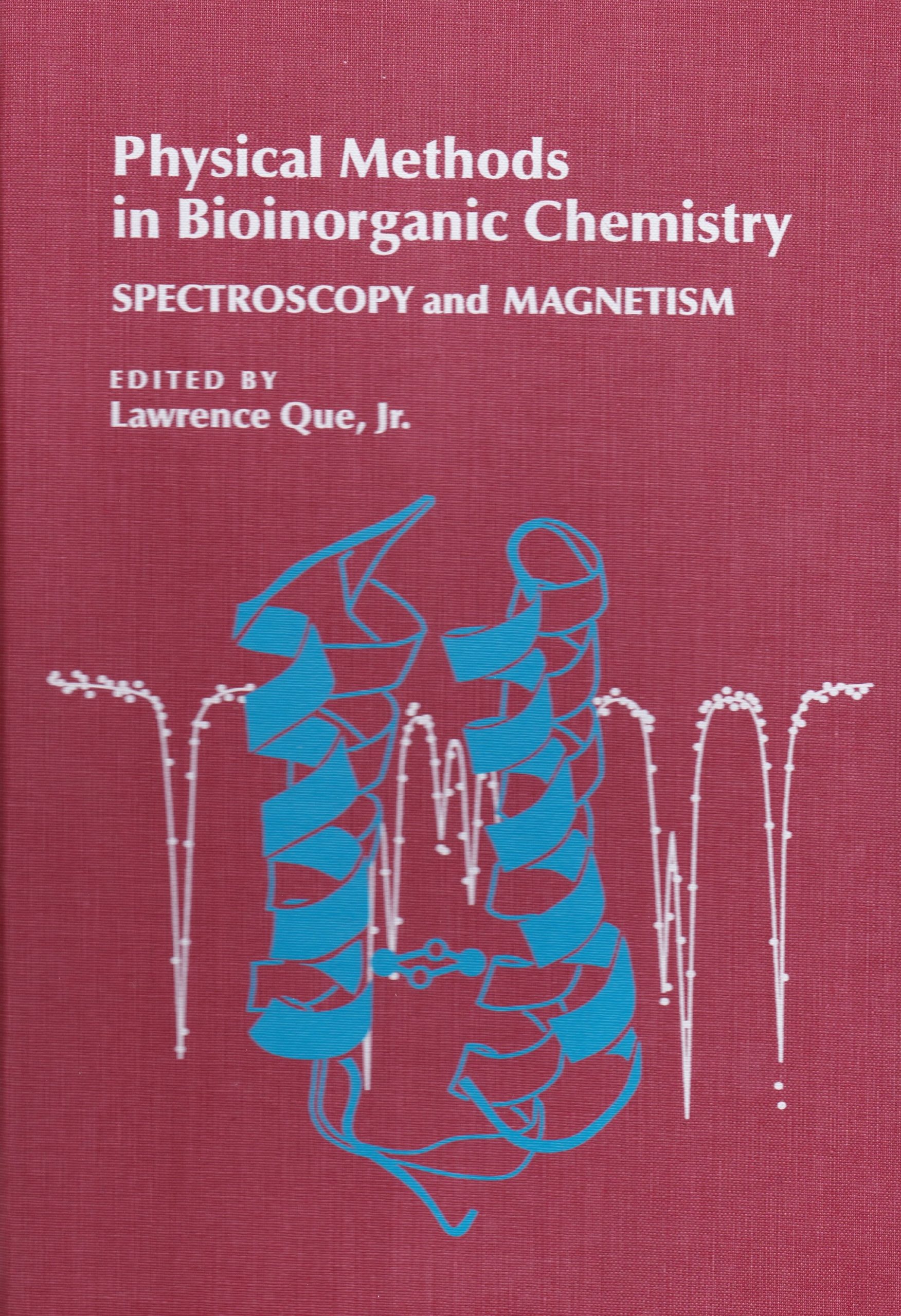
Physical Methods in Bioinorganic Chemistry: Spectroscopy and Magnetism
This text provides detailed coverage of physical methods used in bioinorganic chemistry. Individual chapters are devoted to electronic absorption spectroscopy, resonance Raman spectroscopy, electron paramagnetic resonance spectroscopy, ENDOR and ESEEM, magnetic circular dichroism, Mössbauer spectroscopy, magnetism, NMR spectroscopy as applied to paramagnetic systems, and x-ray absorption spectroscopy.
Summary
This text provides detailed coverage of physical methods used in bioinorganic chemistry. Individual chapters are devoted to electronic absorption spectroscopy, resonance Raman spectroscopy, electron paramagnetic resonance spectroscopy, ENDOR and ESEEM, magnetic circular dichroism, Mössbauer spectroscopy, magnetism, NMR spectroscopy as applied to paramagnetic systems, and x-ray absorption spectroscopy. The book aims to provide a fundamental understanding of each method and demonstrate how data obtained from a system of bioinorganic interest can be interpreted. Case studies are presented in the last chapter in which more than one technique has been applied to gain insight into each given bioinorganic problem. By integrating theory with experimentation and providing an orientation that is more biological than that presented in previously published books, Physical Methods in Bioinorganic Chemistry: Spectroscopy and Magnetism will serve as an important new text for students of bioinorganic chemistry, biochemistry, molecular biology, and their professors.
Resources
Table of Contents
1. Electronic Absorption Spectroscopy
David McMillin, Purdue University
2. Resonance Raman Spectroscopy
Thomas G. Spiro, Princeton University
Roman S. Czernuszewicz, Univeristy of Houston
3. Electron Paramagnetic Resonance of Metalloproteins
Graham Palmer, Rice University
4. ESEEM and ENDOR Spectroscopy
N. Dennis Chasteen, University of New Hampshire
Peggy A. Snetsinger, Sacred Heart University
5. CD and MCD Spectroscopy
Michael K. Johnson,University of Georgia
6. Aspects of 57Fe Mössbauer Spectroscopy
Eckard Münck, Carnegie Mellon University
7. Molecular Magnetism in Bioinorganic Chemistry
Jean-Jacques Girerd and Yves Journaux, Universitat Paris-Sud
8. Nuclear Magnetic Resonance of Paramagnetic Metal Centers in Proteins and Synthetic Complexes
Li-June Ming, University of South Florida
9. X-Ray Absorption Spectroscopy
Robert A. Scott, University of Georgia
10a. Case Study: CuA Site of Cytochrome c Oxidase
Joann Sanders-Loehr, Oregon Graduate Institute of Science & Technology
10b. Case Study: Isopenicillin N Sythase
Lawrence Que, Jr., University of Minnesota
Index
Reviews
“In this timely publication, Que leads a team of notable international experts in bioinorganic physical techniques to produce a well-organized, information-rich book with chapters that are enjoyable to read…this book is a must!”
-Journal of Chemical Education
“This book is an excellent compilation of chapters…While there are other notable books available on physical methodologies for inorganic chemistry, this is the first such introductory level book to focus on the wide range of problems unique to biological applications. This book will be useful as a text in a course for advanced undergraduates and beginning graduate students.”
-J. Am. Chem. Soc.
“This book is a very valuable addition to the Bioinorganic Chemistry literature…I would strongly recommend it to its target readership.”
-Journal of Biological Inorganic Chemistry
“This book will be essential for the library of anyone interested in inorganic chemistry, bioinorganic chemistry, physical biochemistry, and related fields. The authors are experts in their respective subjects, so it is no surprise that the result is authoritative and instructive.”
-Professor Grant Mauk, University of British Columbia
